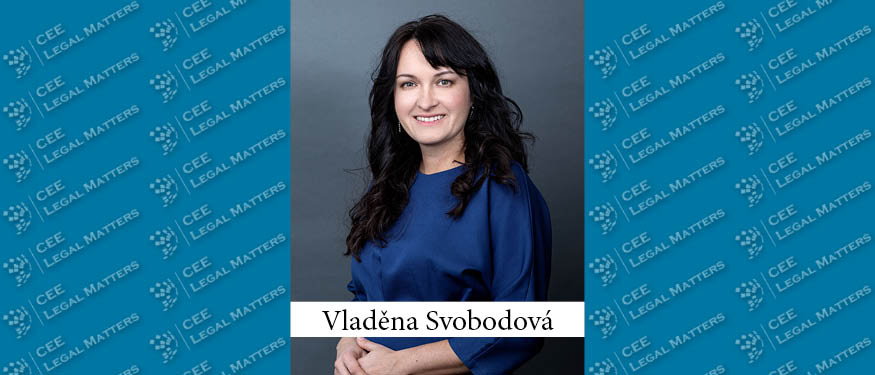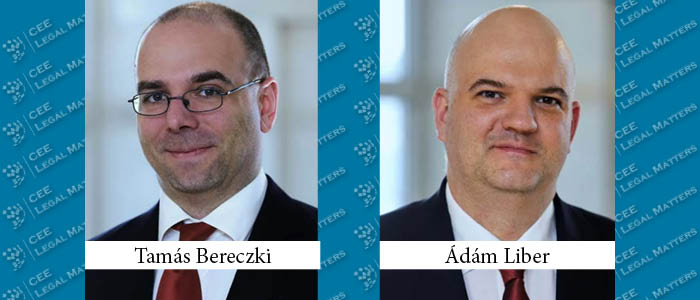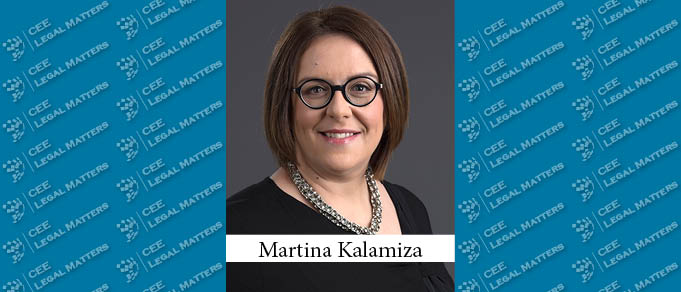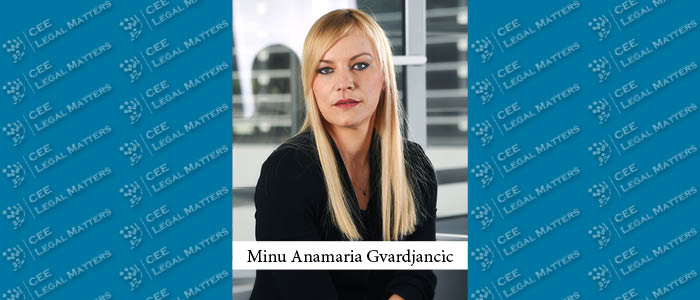In line with the recent developments across the world, the National Artificial Intelligence Strategy 2024-2025 Action Plan (“Action Plan“) was published, prepared in cooperation with the Presidential Digital Transformation Office of the Republic of Türkiye and the Ministry of Industry and Technology, and in line with the opinions of various public and private actors and nongovernmental organizations (“NGOs“), to advance Türkiye’s framework on artificial intelligence practices and strengthen its global position in terms of artificial intelligence.
New Activity Codes: Administrative Obligations for Hungarian Companies
In July 2024, the Hungarian Central Statistical Office began sending formal notifications via email regarding changes to the statistical codes of various activities. Although the required procedure takes only a few minutes, non-compliant companies may face penalties.
New Rulebook on UBO Registration in Montenegro – Key Compliance Deadline Approaching
The Montenegrin Ministry of Internal Affairs recently implemented a Rulebook on Ultimate Beneficial Owner (“UBO”) Registration, effective from 27 July 2024. It introduces significant changes in how legal entities in Montenegro must manage their UBO information as part of the country’s effort to strengthen its fight against money laundering.
Bankruptcy – Consequences on the Course of the Civil Proceeding
As a result of major market changes, business entities more often suspend their operations and become insolvent, during which arises the question of the collectability of the claims of their creditors and associates, as well as persons who are in other relationships with such insolvent business entities.
Important Changes to the Legislation on Waste Electrical and Electronic Equipment
On 17 May 2024, Law No. 127/2024 for the approval of Government Emergency Ordinance No. 5/2015 on Waste Electrical and Electronic Equipment (Law No. 127/2024) entered into force, after a laborious journey marked by extensive debates and negotiations, thus finalizing a legislative process that began in 2015.
Significant Changes in the Administrative Service Fees of Land Registry Proceedings
From 29 July 2024, the administrative service fees relating to procedures for land registry, plot formation, land surveying and mapping, and the provision of data from the land register and the state databases will be increased significantly.
New Building Act - Part 3
The new Czech Building Act (Act No. 283/2021 Coll., the Building Act, as amended (NBA)) became effective on 1 January 2024 and gradually replaces legislation set forth primarily in Act No. 183/2006 Coll., on zoning and building regulations (Building Act), as amended (OBA).
Romanian Competition Council Conducts Investigations of Alleged Abuse of Superior Bargaining Position and Alleged Unfair Trading Practices. What Does This Mean for Companies?
On 26 June 2024, the Romanian Competition Council (the "RCC") announced that it had conducted a dawn raid as part of an investigation concerning the possible abuse of a superior bargaining position by a company active in the supply of liquid medicinal oxygen against a public hospital. The investigation has been launched ex officio as a result of information received from public sources. The case is noteworthy as it marks the first time the RCC has launched a review regarding an alleged abuse of superior bargaining position, a relatively new type of infringement under Romanian competition rules.
Trademark Triumph: Landmark Profit Surrender Ruling In Serbia
Serbia’s 2020 Trademark Law introduced a novel provision to local law: the trademark holders have been explicitly empowered to claim profit surrender in cases where the infringement was not intentional or grossly negligent.
Two Gun-Jumping Investigations Launched by the Serbian Competition Commission
On 14 June 2024, the Serbian Competition Commission (the “Commission”) initiated two proceedings against companies belonging to the Agromarket Group for allegedly implementing notifiable concentrations without obtaining prior approval from the Commission. The acquisitions occurred in 2020 and 2024 and both concern targets located outside of Serbia.
Is an Amendment to the Competition Act in the Works?
You may have noticed that there has been a discussion about an amendment to the Act on Protection of Competition in recent weeks. If it passes the legislative procedure, what would it mean in practice?
ECJ Decides on Hungarian VAT Refund Claim
In its latest decision of May 16, 2024 the European Court of Justice (ECJ) reflected on the Hungarian foreign VAT refund regime. ECJ established once again that non-compliance with formal requirements should not prevent reimbursement of VAT provided that substantive requirements can and have been satisfied.
Whistleblower Law
On June 24, 2024, the Act on the Protection of Whistleblowers (the "Whistleblowers Act") was published in the Journal of Laws, which means that most of its provisions will come into force on September 25, 2024.
Poland – Privacy Implications of New Whistleblowing Rules
Poland has finally implemented the EU Whistleblowing Directive. The new law will enter into force on 25 September 2024, leaving little time to adapt to the new regulations. We highlight the key privacy implications of implementing the whistleblowing procedures in Poland and outline the actions organisations need to take in the upcoming weeks.
The State of Web Scraping in the EU
High-quality, diverse, and extensive datasets are fundamental for improving machine learning model performance, and web scraping helps gather the necessary data to develop more robust and generalizable models. Web scraping pose different legal challenges, such as data protection, copyright and contractual law related issues. Intellectual property concerns arise as website content, like text, images, and data, is often copyrighted, and scraping without the copyright owner’s permission may lead to infringement claims. Further to this, many websites prohibit scraping in their terms of service, and violating these terms can also result in legal action against the operators of web scrapers.
Guest Editorial: Consolidation in the CEE Legal Market: A Necessary Trend or Mere Fashion?
In the dynamic Central and Eastern European legal sector, the trend of law firms merging and consolidating has become increasingly prominent. This trend is driven by a quest for synergies, expanding the client base, achieving cost savings, and gaining a competitive edge in the war for talent.
Croatia: Sustainability Linked Bonds on the Capital Market
Almost two years ago, I discussed in an article published in CEE Legal Matters the presence of “green” bonds and financings in Croatia. The thesis put forward in that article was focused on the necessity of companies and financial service providers to be more “green” in terms of the products they offer on the Croatian (capital) markets and goals on sustainability which should be accomplished.
Bulgaria: OTC Derivatives, Repurchases, and Securities Lending Transactions – Expected EBRD-Driven Reforms
Derivatives, repurchases, and securities lending transactions are often used by sophisticated financial institutions and large corporate entities in Bulgaria to manage their portfolios of investments, hedge against financial risks, or get short-term credit. Such products are predominantly offered on an OTC basis by foreign banks, with mainly the largest local banks having the know-how and resources to do the same.































